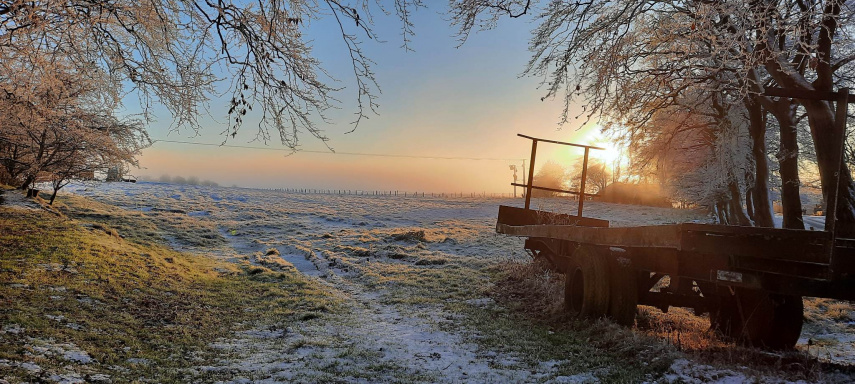
Delivering for the tenanted sector in 2023 and beyond
Bob McIntosh
In his first blog of the year, Tenant Farming Commissioner Bob McIntosh looks ahead at what’s in store for the tenanted sector in 2023.
As we look forward to what’s in store for the tenanted sector in 2023, we anticipate finding out more about future government support for farming and other land uses. It is clear from the recent Agriculture Bill consultation that future support for the agriculture sector will require the delivery of a wider range of public benefits beyond food production. Included in the proposals are measures for modernising the agricultural holdings sector to enable tenant farmers to play a role in addressing climate change and enhancing biodiversity. A more holistic approach to land management is expected, with increasing support ̶ and requirement ̶ for activities in support of biodiversity and a net reduction in greenhouse gas emissions. We are likely to see activities such as tree planting and peatland management being incentivised to become a more common feature of farming businesses.
The Scottish Government is committed to moving towards shifting 50% of direct payments to climate action and funding for on-farm nature restoration and enhancement by 2025. Alongside these proposed payments, there are private markets emerging that could potentially offer payments for environmental improvement and climate adaptation and mitigation. Whilst I am wary of selling carbon off-farm, as many farmers will need it to balance their own emissions, we need to make sure that the tenanted sector does not get forgotten whilst these new ways of working are being developed.
All tenancies under agricultural holdings legislation must follow the rules of good estate management and the rules of good husbandry. This means that the occupier is required to maintain a reasonable standard of efficient production, while keeping the unit in a condition to enable such a standard to be maintained in the future. This stems from the Agriculture (Scotland) Act 1948 when, after the Second World War, there was an emphasis on efficient farming in the public interest.
I would contend that there is still a need for emphasis on efficient farming and food production on tenanted holdings, but the question now is whether tenants should be permitted to carry out additional land management activities that fulfil the current public interest in delivering net zero and biodiversity. The government is committed to creating equal access to support for tenants and owner-occupied farmers, yet the current rules of good management for agricultural holdings are likely to make it difficult for tenants to carry out some of the activities that are to be supported under the new Bill’s proposals.
I am currently working with stakeholders to consider the best ways forward – ways that support the sector as a whole. This requires a balance to providing opportunities for tenants to access public support to deliver the government’s aims, but also to consider the implications for landlords who have essentially let land for agricultural purposes. Fair and reasonable options that respect both landlord’s and tenant’s rights might, for example, include modifying diversification arrangements or altering compensation arrangements for non-farming activities.
We also have to consider the future of the tenanted sector – the letting of land will continue to decline if it is not attractive to landowners to do so. The proposals for a new land use tenancy are interesting in that they allow for a wider range of land use activities to address environmental, climate change, and biodiversity activity. This new proposed tenancy aims to be flexible without some of the constraints of current tenancies. As far as I understand, prior to entering into an agreement, the tenant and landlord would need to agree the activities being undertaken, the rent, the length of the lease, and a record of the fixed equipment. This is still a proposal at this stage but it may go some way to creating new opportunities for new tenants.
I am keeping an eye on developments and am currently working with stakeholders to help the Scottish Government provide the most appropriate legislation, policy, and support. You can find out more about these discussions by reading the minutes of the Tenant Farming Advisory Forum.
